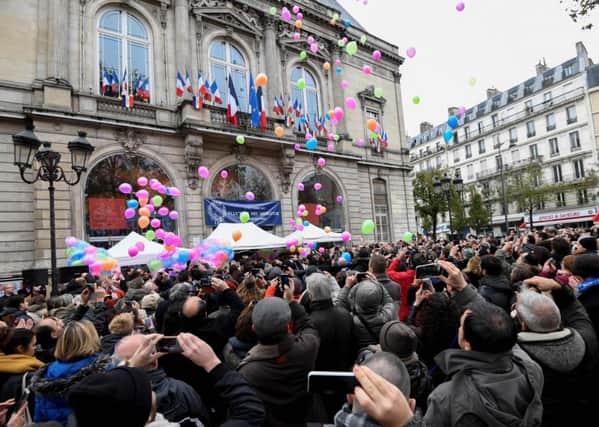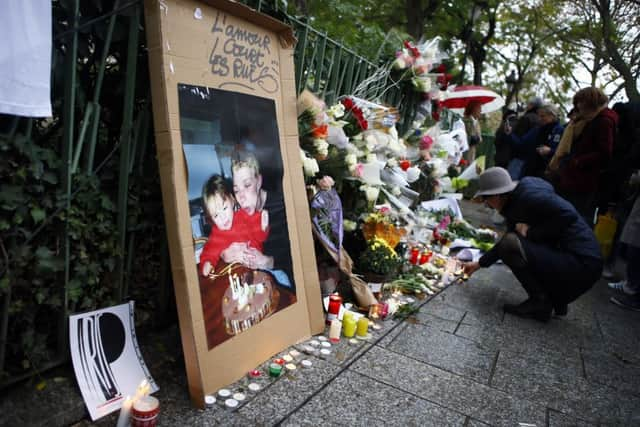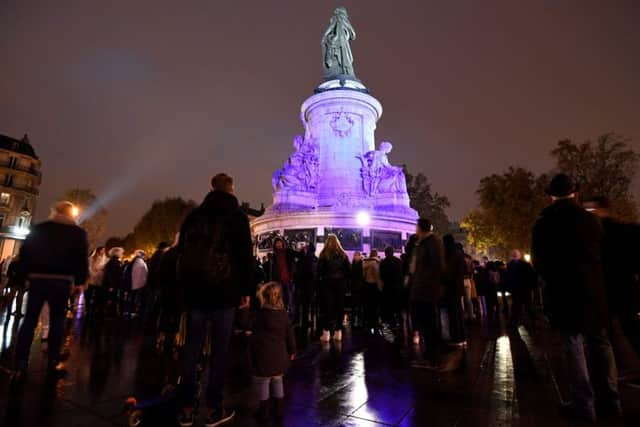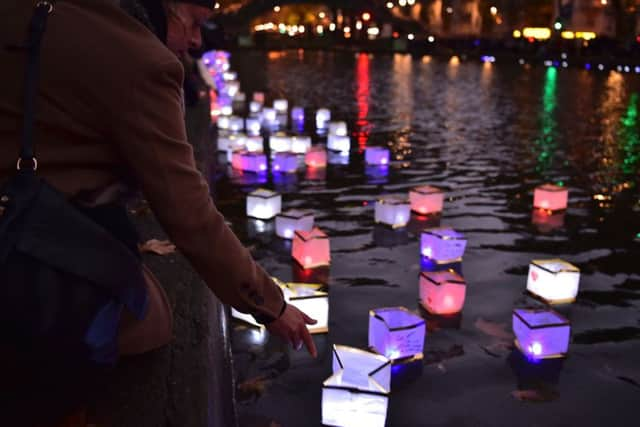Paris attacks: France marks anniversary to remember 130 killed


Under heavy security, President Francois Hollande unveiled a plaque outside the Stade de France “in memory of Manuel Dias,” pulling away a French flag covering it on a wall at one of the entrances to the French national stadium where Mr Dias was killed on November 13 last year by a suicide bomber. Paris Mayor Anne Hidalgo joined the president at six other sites where crowds ate, drank or revelled in music.
Mr Hollande did not speak at the sites, saying he wanted the day to focus on remembering the victims rather than on politics.
Advertisement
Hide AdAdvertisement
Hide AdThe Islamic State (IS) group claimed responsibility for the attacks.


The only voices heard during the ceremonies were the reading of the names of the victims and the son of Mr Dias, the first person to die.
Three teams of extremists coming from neighbouring Belgium targeted six bars and eateries, turning scenes of Friday-night fun into bloodbaths.
At the Stade de France, Michael Dias said his father - an immigrant from Portugal - was “living proof that integration is possible, necessary” to end the madness of violence carried out by those who felt excluded.
Learning to live again after extremists killed his father was “a personal challenge but it concerns us all”, Mr Dias said, crediting his father, who came to France at 18, with life lessons like the need for education.


The final stop, the Bataclan concert hall - which reopened on Saturday with a concert by pop star Sting - was the site of the bloodiest and longest attack.
Ninety people were killed by three attackers who also took a group of people hostage.
The youngest and oldest victims of the night of horror were a 17-year-old and a 68 year-old - both killed at the Bataclan.
Advertisement
Hide AdAdvertisement
Hide AdFamilies of victims, security and rescue forces and some still trying to heal were among those present at the ceremonies.


In addition to those killed, nine people remain hospitalised from the attacks and others are paralysed. The government says more than 600 people are still receiving psychological treatment after the attacks.
The remembrances come after the Sting concert that reopened the refurbished Bataclan concert hall.
Sting asked concert-goers in fluent French to observe a minute of silence as he opened the show.
“We’ve got two important things to do tonight,” the 65-year-old said.


“First, to remember and honour those who lost their lives in the attacks a year ago ... and to celebrate the life and the music of this historic venue. We shall not forget them.”
Elodie Suigo, who lost six friends in the attack, said that it was a hard night, even though she loved the music.
“It was difficult going through that door. I don’t think I was the only one ... We cannot say it was a magical moment because of everything that changed in our lives. But (Sting) is a really great man,” she said.
Advertisement
Hide AdAdvertisement
Hide AdMeanwhile, France’s Prime Minister Manuel Valls said the country’s state of emergency imposed after the terror attacks in Paris is likely to be extended.
He said the measures were needed to “protect our democracy”.
Mr Valls said the state of emergency would be extended because there was a risk of “attacks of the kind we saw in Nice”. France’s state of emergency was extended for six months in July after a lorry driver ploughed through a crowd, killing 84 people in Nice. The measures give police extra powers to carry out searches and place people under house arrest.